This post may contain affiliate links and Corporette® may earn commissions for purchases made through links in this post. As an Amazon Associate, I earn from qualifying purchases.
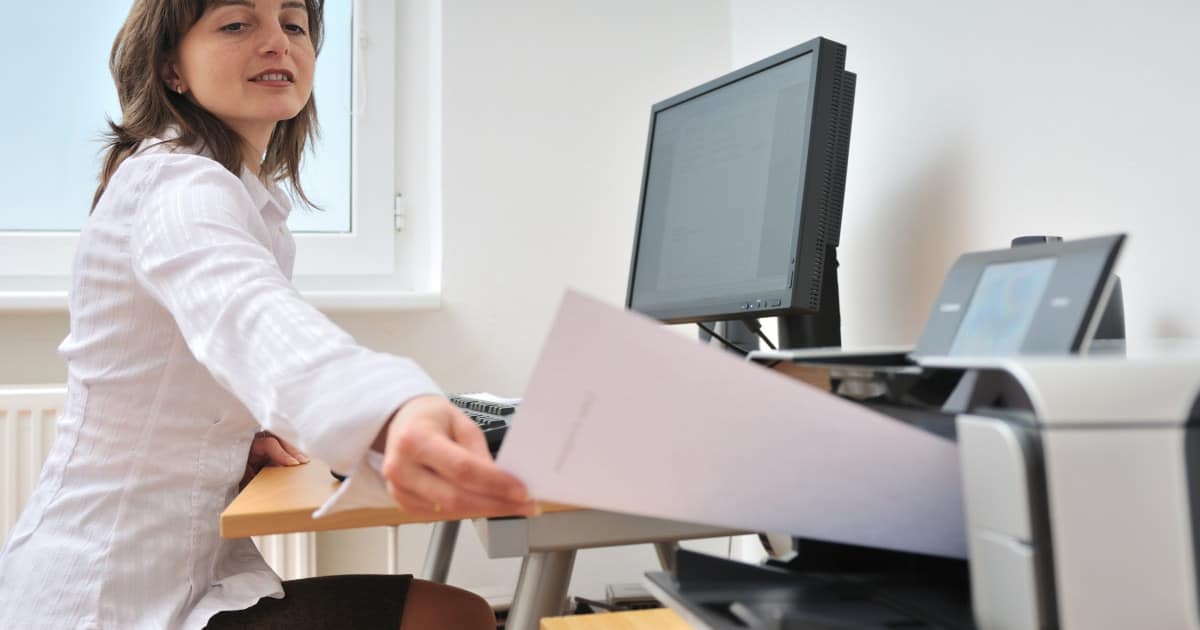
Here's a fun question for today: What productivity hacks really work for you? Does your diligence with productivity hacks come in waves (as resolutions strengthen and weaken) or have you hit on anything that is your new normal? What have you tried but failed to implement regularly — and what productivity hacks really work for you, particularly at work?
This is constantly something I'm thinking about, and I've tried a LOT of productivity hacks.![]()
These are some of the productivity hacks that really work for me:
Adopting a one-touch attitude with mail — I sort it into recycling, trash, and bills the instant I get it to my kitchen counter.
Only paying bills once a month — It's just one fewer thing to worry about, and if I wonder about a bill, my brain very easily says, “But it isn't the first of the month for another week! Worry then!”
Saving all phone calls for one session — I hate the phone, and it really interrupts my focus if I get or make a call. My cell phone's default ringer is a silent ringtone (you can download them from the iTunes store!), so the only people whose calls make a ringing sound are family and friends for whom I've manually changed the ringtone. I also tend to make a list of phone calls I need to make so that when I sit down with the phone and headset I can make them all in one session.
Decreasing choices to decrease decision fatigue — Obama was famous with this in terms of his outfits, wearing the same things repeatedly so that he didn't have to use brainpower to choose something different every day. I definitely have a work uniform that I repeat most days, and I also tend to repeat a lot of meals (lately I'm really into savory oatmeal with eggs, or grilled chicken with a teensy bit of a guacamole salsa).
Productivity hacks that work like gold… when I do them, which is less than “all the time”:
Moving to a new workspace — In a big L-shaped desk office, just moving to the visitor's side of the desk works wonders!
Writing THREE tasks to do that day and only focusing on getting them done.
Pomodoro timers — 25-minute bursts of focus + 5 minute breaks — these are really hard for me to do more than 3 or 4 rounds. I think 25 minutes is a bad amount of time for me but I haven't had a chance to hack it to see what my individualized “premium burst of focus” is.
Batching tasks — I try to do this but rarely succeed. For my work, for example, I should only write on one day, then do graphics another day, then do social media and SEO a third day, then do email or “market research” (checking the stores) a fourth day, then bigger projects (like the work outfit challenge) on the fifth day… but instead things tend to get mixed throughout the days.
Only keeping ONE browser tab open at once — I am totally that lady who has 75 tabs open in multiple browser windows at all times. There's a Chrome Extension called OneTab that instantly collapses everything but keeps track of where you were, and I should seriously start each day using it to clear the decks.
Productivity hacks that just aren't my thing:
Keeping track of my time — I suppose this works when I do it, but it's not a high priority for me to get back to. Fun fact: When I first left law firm life I still kept track of my time in 10-minute increments on purpose because it was normal for me and I felt it helped with productivity.
Prioritizing exercise and meditation — While I wouldn't say these AREN'T my thing, it's really hard for me when I'm crunched for time to prioritize exercise and meditation (even though I know that taking 10 minutes to meditate or 20 minutes to do some Tabata workouts is a great way to improve focus and productivity). I try my best to institutionalize those things so I do them at the same time… but if I'm in a crunch for time those are the first to fall away.
These are the productivity hacks that work for me (and the ones that I'm still working on) — let's hear from you, guys: What are your best tips for productivity? Which productivity hacks work for you — and which ones have you tried and dismissed over the years?
Photo via Shutterstock / Martin Novak.
Some of our latest favorite books on productivity, below:
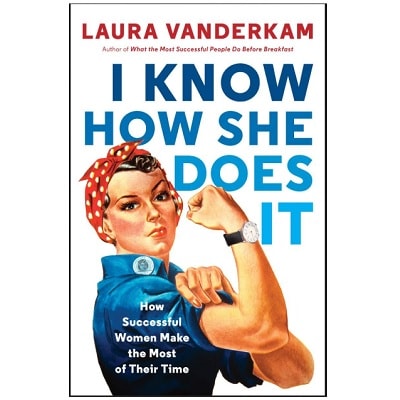
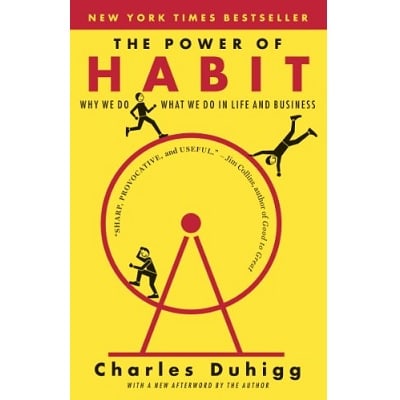
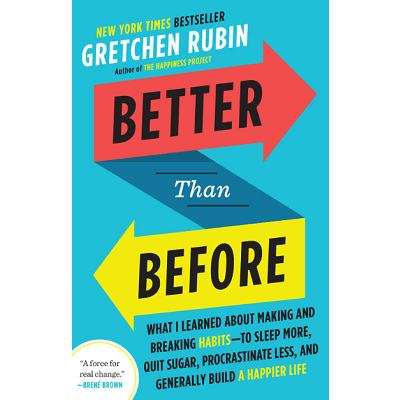
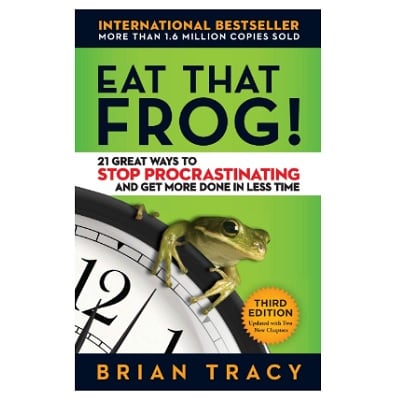
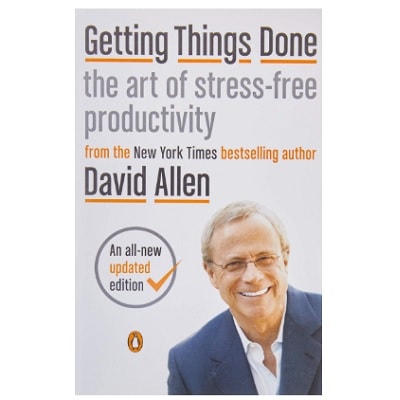
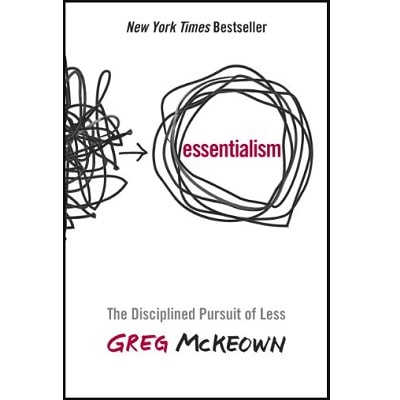
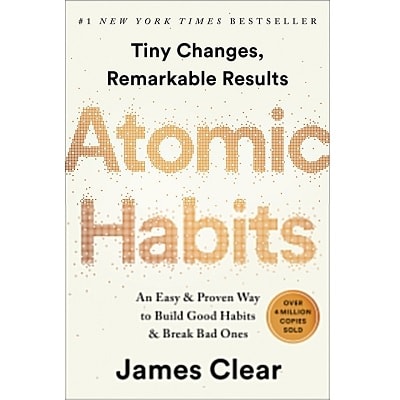
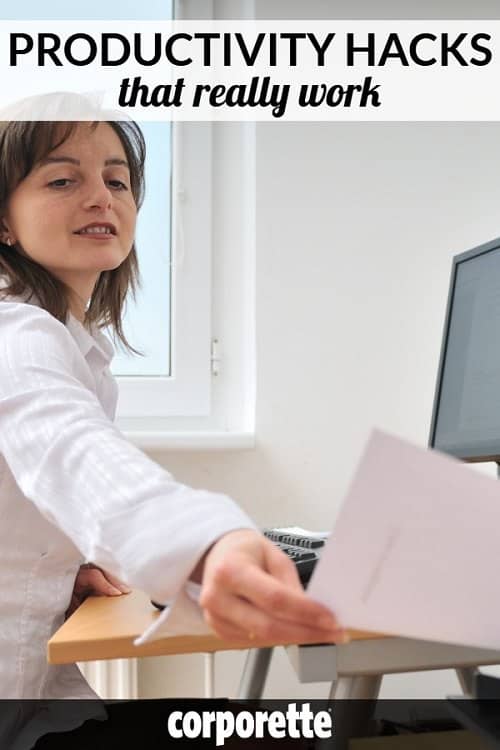

Wanderlust
Personally, I know I can only start big projects first thing in the morning. Any “heavy lifting” needs to be done before lunch, and I save all of my administrative/”easy” tasks for the afternoon.
Elegant Giraffe
+1, I have a hard time starting anything substantial after 2 PM.
anon
Same here. Morning really determine my productivity, and anytime I can move meetings to the afternoon, I will.
Anonymous
And I’m the opposite. I tend to do better when I get the easy, little things out of the way first. After I’ve crossed off a few things, I can really focus on the harder project.
Anonymous
For me, if I need to do substantial writing on something, I do better in the afternoon. If I spend the morning taking care of small tasks, but the afternoon I am ready to get the big things done. That said, I also find it really helpful to “eat the frog.” So I do the things I am most dreading first, and then the rest of the day flows better. For brief writing, this includes writing issues I least like first and saving the ones I am more excited about for after. For phone calls or emails, this means sending the ones I don’t want to do first.
Anonymous
On days when I work from home, naps work! No, seriously, after a short nap, my ability to concentrate on harder tasks is restored. I wish we could nap at work like in kindergarten.
Anon
+1 (say I, as I return to my home office desk from a nap). Naps are proven to work but for some reason are a taboo at work.
Anon
I managed to get the partners to agree to let me have a couch in my office. Almost every afternoon I have a 13 minute nap. It’s done wonders for my productivity!
techgirl
I think about meeting lengths when I book them rather just using 30 mins or 1 hour cause that’s ‘normal’. 20, 45, even 50 mins sometimes. Most meetings are on the hour/half past so it gives me time to ensure I can get back to my desk, action anything and prepare for the next one successfully.
Renee
I agree with this list so much, especially about reducing decision fatigue. Some other things I do that help: one, draw up a list of must-dos for the following week on Sunday (I love the Ink+Volt planner); two, if possible, work where my energy is for any given day (some days my brain is ready for writing; other days are better for phone calls, errands, & meetings; and other days are for database work); and three, when possible and without being a jerk, say no to things or simply wait some requests out. I recently realized that, for example, I didn’t need to drop everything to solve someone’s computer problem or proofread that press release that eight other people were copied on. Since that realization, so many requests that appeared in my inbox have been resolved successfully without my input and time, and it’s liberating.
peach
I memorized the quick keys for Microsoft Outlook, and it makes creating meetings, tasks, and email much faster because I don’t need to use my mouse as much. Navigating through email is faster, too. Seems daunting, but you learn them overtime. Saving and closing meetings, tasks, and emails is as easy as ALT+S. You can enter dates in a natural language style (e.g., type “tomorrow” instead of “July 20, 2018”; type “next week” instead of figuring out an actual date; type “Friday”; etc).
Creating new items from any screen in Outlook:
create new appointment: CRTL+SHIFT+A
create new meeting: CRTL+SHIFT+Q
create new message: CRTL+SHIFT+M
create new task: CRTL+SHIFT+K
saving & closing one of the above items: ALT+S
Search messages: CRTL+E
Advanced search messages: CTRL+SHIFT+F
Clear search: ESC
In Reading Pane, previous/next message: ALT+UP,DOWN
In Reading Pane, page up, down through text: SPACEBAR, SHIFT+SPACEBAR
In Reading Pane, move to next field: SHIFT+TAB
In Reading Pane, move to next field: CTRL+TAB
Create appointment: CRTL+SHIFT+A
Save as: F12
Print: CTRL+P
Forward: CTRL+F
Copy an item: CTRL+SHIFT+Y
Move an item: CTRL+SHIFT+V
Check names: CTRL+K
Insert hyperlink: CTRL+K
Flag an item or mark complete: INSERT
ALT to see which key for navigating
Search people: F11
You can find other quick keys by searching online. Gmail has some, too.
Anon
Had no idea there were shortcuts for Outlook. THANKS!!!
Peach
You’re welcome! Flagging an email for follow up (thereby creating a task) by just hitting INSERT is one of my favorites.
Celia
Hitting the ALT key on Windows machines will active the drop-down menus. The underlined letters are “hot,” so if you do ALT-F-P, the Print box comes up. Mouse just slows me down, man.
peach
Quick update: These shortcuts only seem to work on Microsoft office desktop software. They don’t seem to work online on Office 365. Bummer!!!
Frozen Peach
I have one to add! Dictation as a cure for writer’s block.
When I need to produce a Sh***y First Draft, I frequently talk at my phone dictation app while I’m doing something else mindless like driving or some kitchen/cleaning task. It’s incredibly helpful to “distract” my ego with some manual task I can do mindlessly and just download the ideas, then have something (that frequently includes phrases like “This may be a bad argument but” or multiple synonyms of the same word as I try to think of the right one. But it’s game changing for big writing projects when you’re staring at a blank page or crunched for time.
Lemon Drop
This is interesting to me–several of my bosses keep suggesting I try dictating, but I find it so foreign. How did you get started?
Ellen
I avoid wasteing time billing individual cleints. Instead, I just total up all of my hours at the end of each week, then devide the total # of hours by the number of cleints, and then bill the average to all cleints. If the managing partner wants to adjust, he can, but if he deduct’s from one cleint, he must add whatever he deducted to the other cleint’s. He bills for this anyway, and I am out of it at that point. This is a real time saver for me b/c I do NOT want to waste my time keeping time for each cleint, when in fact, I work for ALL of them! YAY!!!!
Peach
I have tried dictation, but it never quite worked for me. A few years ago, I tried using the Dragon dictation software from Nuance. The speech recognition was indeed pretty good, but the integration of that software with Microsoft office was terrible. The Microsoft software would either be very slow or it would crash. It did not save me time. Later, I tried using the speech recognition tool that is part of Microsoft windows. I think it’s designed for people who have disabilities. It too did not seem to save me time. I also tried dictation on my phone and tablet, but I found that the time for dictation (Ie, the “listening” would be too short), especially for a device with a cellular data connection. However, today I noticed that Microsoft has a “garage project“ called Dictate, which is supposed to enable dictation in outlook, word, and PowerPoint. I’m downloading it now! Fingers crossed! Hope it works out.
peach
I couldn’t get Microsoft Dictate to work. I think it is only supposed to work on Microsoft 365 (not the desktop versions of Office software), but I couldn’t get it to work on Microsoft 365 either on my desktop. On my tablet connected to WiFi, the dictating using the usual way (via the microphone icon in the keyboard) into Microsoft 365 apps seemed to work alright. Maybe this is the solution!